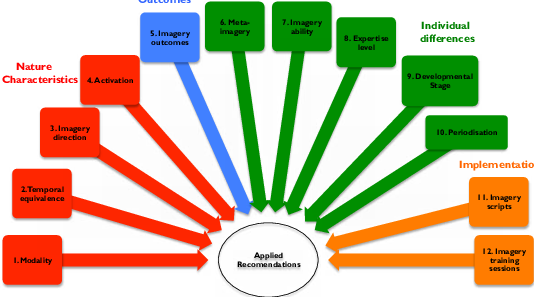Response to Jonathan (Application of Mental Imagery)
Jonathan, your post on the application of mental imagery in sports is very informative. I want to expand on the application of mental imagery for athletes. Di Corrado et al. (2020) explain that mental rehearsal/imagery is important in motivating athletes during competitions. It enables them to visualize and set daily goals, enhancing their potential to achieve those objectives. Besides, athletes can also apply mental imagery skills during their training to improve their strengths and reduce weaknesses (Di Corrado et al., 2020). It is important in increasing athletes’ mental strength compared to non-athletes who do not train.

Additionally, Junnarkar, Sahni, and Gill (2021) observe that metal imagery aids athletes in regulating their anxiety during competitions. Athletes who have imagined positive competition outcomes tend to exhibit higher confidence and improved psychological response throughout the competition. They utilize it to supplement their physical practice and remain relaxed while out-competing their opponents, such as in gymnastics. Moreover, mental imagery skills influence the outcomes of rehabilitation and recovery among athletes, such as footballers (Junnarkar, Sahni & Gill, 2021). The athletes can contemplate the images of complete recovery or injuries that are healing to help cope with pain and enhance recovery processes.
References
Di Corrado, D., Guarnera, M., Guerrera, C. S., Maldonato, N. M., Di Nuovo, S., Castellano, S., & Coco, M. (2020). Mental imagery skills in competitive young athletes and non-athletes. Frontiers in psychology, 11, 633. https://doi.org/10.3389/fpsyg.2020.00633
Junnarkar, M., Sahni, S. P., & Gill, S. (2021). Resilience and Well-Being in Sports. In Emotion, Well-Being, and Resilience (pp. 267-280). Apple Academic Press. ISBN: 9781003057802
